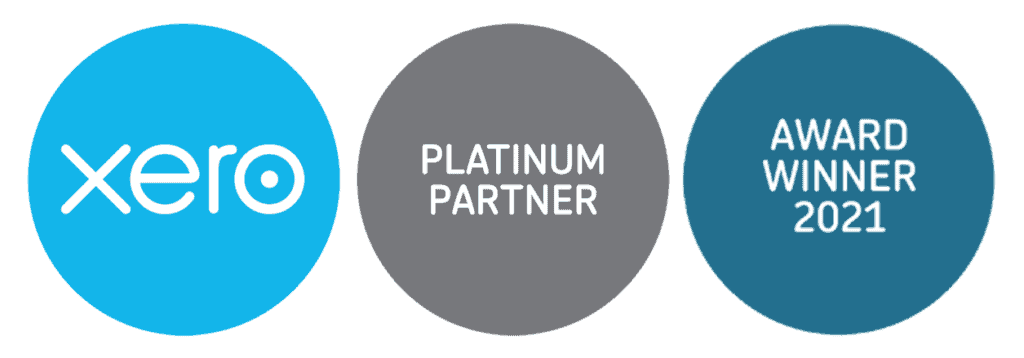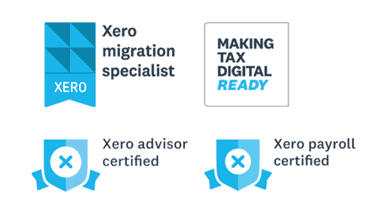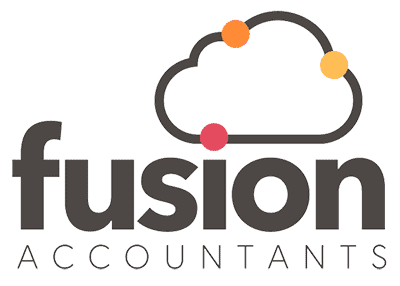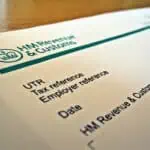Xero Cloud based accounting for Freelancers
Reading Time:
Freelancers often have to manage many aspects of running a business and having the right tools to help them keep track of their accounts is invaluable. Using Xero accounting software, which is explicitly designed for Freelancers to manage their finances, might be just what you are looking for.
As Xero Platinum Advisors, we have gathered first-hand experience from our clients to offer you some tips and advice so you can get the best out of managing your accounts and reduce admin time so you can continue “business as usual” and focus on your day to day projects.

1. Start an organised system
The following steps can assist with maintaining an organised structure and help you change the way you do business for the better. Being organised is vital for your business, as without it, you may struggle to manage your finances which could have legal and financial implications later on. So, get on top of it from day one when you start freelancing!
- Ensure that you do your accounts every week to not pile up and remain up to date.
- Set aside a specific time every week or month to do your accounts, so you never fall behind.
- Xero will help you run your business! By entering all your paperwork into the software functions, you can track your cash flow, income, and expenses all in one place.
- If you become overwhelmed with paperwork and your budget allows it, consider hiring a bookkeeper to help you maintain your accounts.
2. Which records are required for an organised accounts system?
These records are required to maintain an organized system and should be entered into your Xero accounts software weekly. In the long run, this will ensure that you have all the documents that your a
We have listed below all the records required to maintain an organised system and should be entered into your Xero accounts software weekly which will ensure that you have prepared all the documents that your accountant will need to complete the end of year accounts, quickly and easily. They are also essential should you ever receive a request from HMRC to do an audit.
- Accurate client invoices
- Business and personal expenses
- Bank transfers
- Payments received from clients
- Payments made to suppliers
- Money that is owed to you
- Money you owe
- Total number of hours worked per job
- Cost per hour for each job
- Details of clients
- Bills of Materials used for each project
3. Deductible Expenses for Freelancers
As a self-employed freelancer, there are a number of expenses that you are eligible to claim for which are deductible from the tax that you owe. Remember, you must keep a record just in case you are one day investigated (by HMRC) and need to explain your calculations.
- Travel expenses
- Office rent
- Telephone bills
- Power bills
- Expenses on computers, printers, phones
- Some client entertainment expenses

4. Manage Payments to ensure efficient collections
By keeping a well organised and up to date accounts system, collecting payments becomes much easier and more efficient. Late payers are also a real issue for Freelancers. By taking the following steps, you can minimise late payments and unnecessary stress.
- Use your estimates of time and costs to prepare budgets and create your quotes in minutes.
- Invoice on time and include your time and any materials used for the project
- Send invoices via email or phone app for quick approval turnaround. This also acts as written proof if late payment becomes an issue.
- Xero can trigger late payers saving time on chasing payments. Using an ageing summary report, Xero will show you which invoice(s) are unpaid and overdue.
- Late payers must be chased. Add a ‘Pay now’ button to online invoices to speed up the payment process.
- If your work has been completed to the agreed project scope and time limit, then legally they must pay you. Repetitive late payers should be warned and dealt with.
5. Plan for your tax in advance
When completing your Self-Assessment each year, you will need to pay owed tax to HMRC. You should put aside money each month to cover this cost to plan for this cost. We recommend opening a separate savings bank account for this purpose.
Xero allows you to use specialised reports to estimate your Self-assessment tax bill, which can be used to calculate what percentage of your monthly earnings should be set aside in your bank account. Please note that you will have to record this money set aside in your accounts system.
Fusions are Platinum Xero Advisors and recent winners of the mid-sized firm of the year. Find out more about how we help businesses using Xero accounting software.








